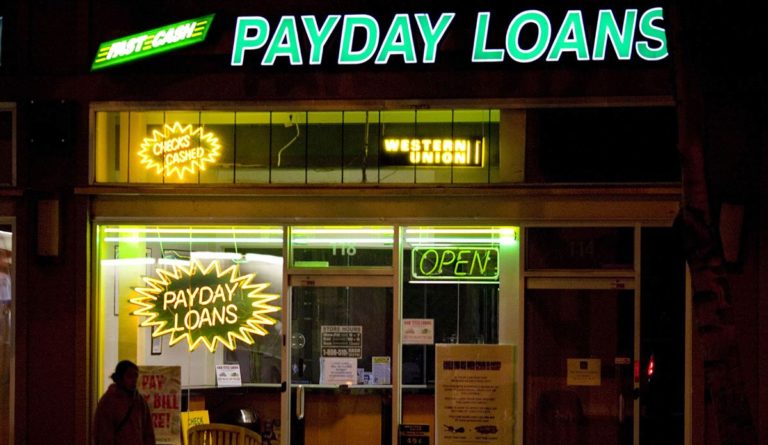Payday Go Away, Come Again ACA
Medicaid can improve family finances. Payday loans, controversial high-interest short-term borrowing, decreased in counties in California that expanded Medicaid under the Affordable Care Act.

Read Time: 3 minutes
Published:
Over 10 percent of Americans lack health insurance. If they experience a medical emergency, they can usually get care in an emergency room—but this treatment comes with a potentially high bill. Unpredictable medical expenses, like ER visits, can easily blow a family budget. Likewise, without insurance routine, medical costs, like prescription medications, may compete with necessities like rent and food. The benefits of health insurance, then, are both medical—such as better access to care—and financial. Indeed, research finds that health insurance coverage reduces bankruptcy rates, reduces the number of bills sent to collection, raises credit scores, and protects families from catastrophic medical expenses, defined as more than 30% of income.
While payday loans are considered “loans of last resort,” almost 70% of people who use them report doing so for ordinary rather than unexpected expenses and users take out an average of eight loans per year.
Strong evidence supports the premise that Medicaid can improve family finances. We decided to study the effect of health insurance on one particular financial outcome: payday borrowing. Payday loans are short-term, high-interest loans that are extremely popular among low-income Americans. The typical payday loan offers the borrower $400, which he or she must repay within two weeks. The fee for that loan is typically $60 or so, which amounts to an annual interest rate vastly higher than what the consumer would be charged by a credit card company or some other more traditional lender. While payday loans are considered “loans of last resort,” almost 70% of people who use them report doing so for ordinary rather than unexpected expenses and users take out an average of eight loans per year. As a result, payday lending is controversial and many states have outlawed it entirely.
The 2010 Affordable Care Act provided states with the opportunity to expand Medicaid, health insurance for the poor, to their low-income residents. Over half of states have done so. In order to isolate the causal effect of health insurance on payday borrowing, we studied California’s early Medicaid expansion in late 2011 and early 2012. We compared payday borrowing in California counties before and after they expanded Medicaid. As a control group, we used counties in the rest of the country that never expanded Medicaid.
We found an 11% drop in payday borrowing after counties expanded Medicaid. We ran various analyses to confirm that drop in borrowing was not driven by some other pattern in the data. We found no alternative explanation for the result.
All in all, our study provides additional evidence that, when low-income Americans gain health insurance, they gain a kind of financial security that protects them from the need to resort to high-interest loans to make ends meet. Such a finding contributes yet another reason to reduce the share of Americans who are uninsured.
Feature image: Thomas Hawk, Stealing from the Poor, used under CC BY 2.0




